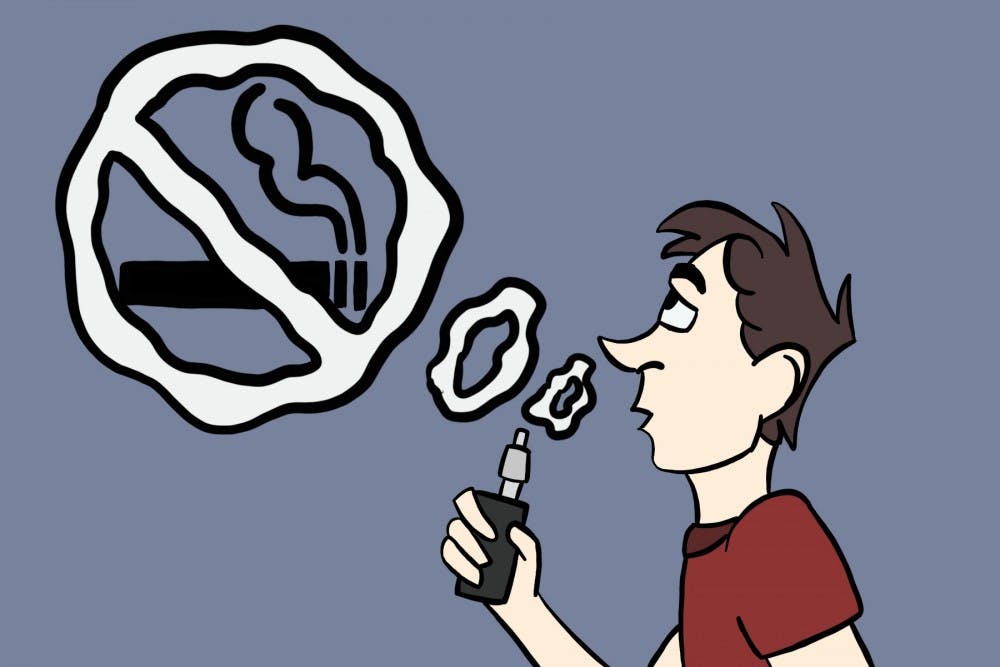Everybody knows that vaping is all the rage now, so that means cigarettes are obsolete in college students, right? Wrong.
People are wrongfully assuming that younger generations are not smoking cigarettes anymore because of the recent popularity of vaping. However, cigarette smoking is still extremely prevalent among college students.
One-third of college-aged students use tobacco products in some way, whether it be cigarettes, chewing tobacco or cigars.
The problem starts with social smoking. Although students may not be smoking every single day, succumbing to peer pressure enforces a bad habit and exposes them to an addictive substance.
"One in ten ASU students say that they have smoked cigarettes in the past 30 days," Karen Moses, the director of Wellness and Health Promotion at ASU, said. "Not all of them smoke daily, so it is the social smoking."
In 2013 the Centers for Disease Control and Prevention released an advertisement that featured a woman smoking from a hole in her neck, prompting 100,000 smokers to quit smoking. Yet, as ad-free TV and Netflix become more popular, college students are missing out on public safety ads like the CDC's.
According to the CDC, 13 percent of adults aged 18 to 24 smoke cigarettes. Furthermore, 19.8 percent of smokers are high school graduates and 18.5 percent have completed some college.
Although vaping may help some students quit smoking or prevent others from starting altogether, smoking cigarettes is still commonplace.
If cigarette smoking was not still an issue, tobacco use would not be the "single largest preventable cause of death and disease in the United States." According to the CDC, 480,000 people die a year from cigarette smoking and 41,000 die from second-hand smoke.
"I think one of the best things that non-tobacco users can do is let people know what their boundaries are around smoking and let them know that they don't appreciate them smoking in their space," Moses said. "When we let other people know that smoking is affecting us, they tend to comply with that, even begrudgingly."
ASU does do its part in combatting this issue by making all of the campuses smoke and tobacco free, but the effort is not enough. Too many students either simply ignore the smoke-free rules or find somewhere else to smoke.
"ASU has a tobacco-free policy and I've seen people walk past smokers that are smoking on campus and not even say anything or do anything to interrupt the smoking behavior," Moses said. "Just remind someone that it is a tobacco-free university and that you care about your environment. Ask them to participate in that policy."
According to Moses, a significant decline was seen in the percentage of ASU students who smoke cigarettes just a year after the tobacco-free initiative was put into action in 2013.
Still, 10 percent of ASU students smoke, which is a large amount of people to be putting themselves at risk.
Vapes and ASU's smoke-free policy have decreased the number of cigarette smokers, but smoking is still a prevalent issue in college students that should not be ignored.
Reach the columnist at jlferrig@asu.edu or follow @Jess_Ferrigno on Twitter.
Editor’s note: The opinions presented in this column are the author’s and do not imply any endorsement from The State Press or its editors.
Want to join the conversation? Send an email to opiniondesk.statepress@gmail.com. Keep letters under 500 words and be sure to include your university affiliation. Anonymity will not be granted.
Like The State Press on Facebook and follow @statepress on Twitter.




